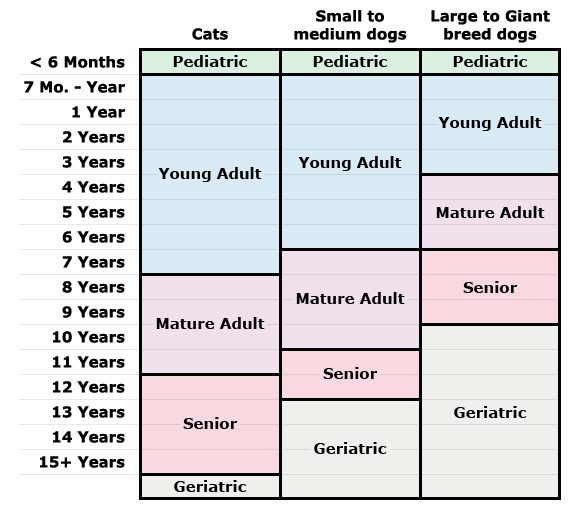River Valley Veterinary Clinic would like to thank you for the trust you have already shown in us by allowing our veterinarian and technicians the privilege of caring for your furry family member and for participating in our Senior Wellness Program.
Today pets are living longer than ever before. As a result, older pets can develop a variety of conditions and ailments that can be easily detected by performing annual blood work. We use senior testing to promote early detection and treatment of disease, so we can maintain health and prevent illness during your pet’s senior years.
Early detection of disease often gives us a more effective and less costly treatment options. Senior testing also helps establish baseline values for your pet, creating a point of comparison for the future.
When is my pet a senior?
With many dogs living well into their teens, many owners wonder: When is a dog truly senior? The answer is that there is no specific age at which a dog becomes senior. Individual pets age at different rates. However, most dogs become senior at 7 to 10 years of age, and most large- and giant-breed dogs become seniors earlier than small-breed dogs.
Cats are also living well into their teens or even their twenties. Again there is no specific age at which a cat becomes a senior. Individual pets age at different rates. As a general guide, however the American Association of Feline Practitioners (AAFP) has suggested the following age ranges to help you assess how the aging process may be affecting your cat’s health:
- Mature to middle-aged: 7 to 10 years
- Senior: 11 to 14 years
- Geriatric: 15+ years
Below is a chart to compare the ages of cats and dogs.

Senior Wellness Package
Our Senior Annual Wellness Package has been created to encourage and allow our clients to provide quality comprehensive medical care for their beloved seniors. The package includes a complete physical exam, vaccinations, annual dewormer and laboratory blood, urine and fecal tests.
Senior Vaccination Package (over 7 years of age) – Includes:
- Comprehensive Physical Exam
- Annual Deworming (Pyrantel)
- Fecal Floatation by Centrifugation (intestinal parasite test)
- *DAPP Vaccine (Dog)
- *Lepto Vaccine (Dog)
- *Bordetella (Kennel Cough) (Dog)
- *Rabies (Dog & Cat)
- *FVRCP Vaccine (Cat)
- *Leukemia Vaccine (Cat)
- Canine Heartworm/Anaplasma/ Ehrlichia/ Lymes Antigen Blood Test or Feline Leukemia/Aids Blood Test
- Senior labwork
* Your veterinarian will tailor the vaccination protocol for your pet. Some vaccines may not be needed.
What is included in senior testing?
- Blood Chemistry Profile: Evaluates liver, kidney and blood glucose to identify liver disease, kidney failure, diabetes, and other disorders.
- Electrolytes: Reveals disturbances in potassium, calcium, sodium, and chloride to identify renal failure, dehydration, and other conditions.
- Complete Blood Count: Identifies white and red blood cell and platelet disorders to uncover infection, anemia, general disease conditions, and clotting problems.
- Thyroid Screen (T4): May help diagnose hyperthyroid (usually seen in cats) or hypothyroid (usually seen in dogs) disease. The thyroid gland is responsible for regulating metabolism in dogs, cats and humans.
- Urinalysis: Gives information on kidney function and checks for urinary tract infections.
- Fecal Test: A test informing us of intestinal parasites, some of which are contagious to humans.
- For our senior canine patients, a heartworm antigen, Lyme disease, Anaplasmosis, and Ehrlicihiosis test: Alerting us if your pet has heartworms or these tick borne diseases.
- For our senior feline patients, a Feline Leukemia and Feline Immunodeficiency Virus Test, as these viruses prevent the immune system from functioning properly.

